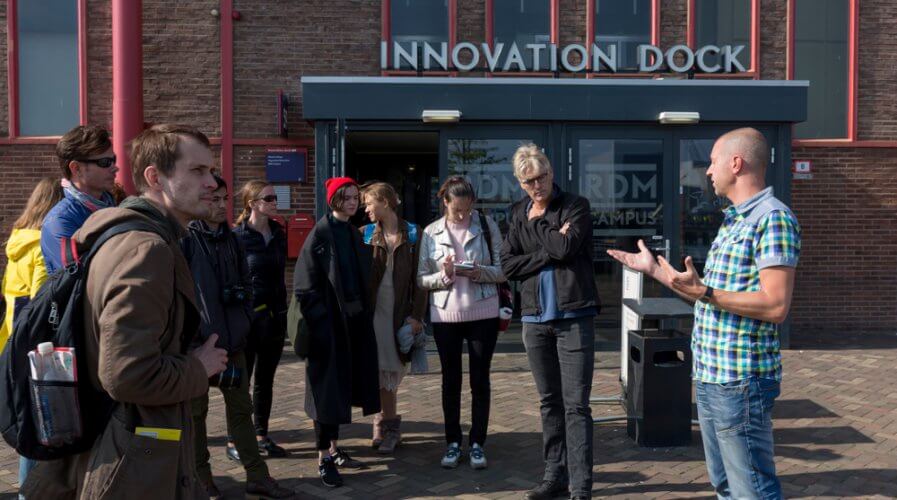
Author Jonathan Reichental says innovation success depends on culture. Source: Shutterstock
Interview: Innovation isn’t a tech problem, it’s a culture problem
INNOVATION is synonymous with change, and in the digital world, technology makes change easy.
Maybe that’s why Lynda (LinkedIn) Author and University of San Francisco Adjunct Professor Jonathan Reichental told Tech Wire Asia ahead of his session at TechSauce Global Summit 2019 that technology is the easiest piece of innovation.
In his opinion, the hardest is the change management of people.
“Start-ups have an advantage to a degree because they are all in. A start-up commits to an idea and must pursue it until success or bow out after trying.
“A big business can be lazy. With multiple business lines and a lack of perceived urgency, the necessary attention to innovation can be missing.”
According to Reichental, almost every organization today needs to be paranoid about becoming irrelevant — fuelling their urgency to innovate, and create new value from ideas.
“Once irrelevancy happens, the end of the organization will be quick. If innovation is not seen as urgent, this is a problem.”
Managing change, fostering an innovation culture, and driving an innovation mindset are of course things even big consulting giants such as McKinsey and BCG talk about often.
In the digital era, culture and mindset are critical because not only do ideas need to come from people but successful adoption means everyone across the organization needs to be receptive to the tech-driven changes in their workflow.
According to the professor, change happens overnight in the fourth industrial revolution which is why organizations must constantly explore new ways to improve their business and delight customers.
“In my view, many are not engaged sufficiently in the necessity to innovate and evolve at speed. The ideas are not big enough and the risks being taken are not high enough.”
While Reichental sees big businesses revving their innovation engines, he question whether they create urgency and be bold enough in their plans.
The reality is that a small start-up with a great idea and the boldness to quickly reinvent a market can prove fatal to any big business.
We’ve already seen plenty of examples — from Uber and Airbnb that disrupted whole industries to Neobanks such as MYbank, Monzo, and Moven that forced the big banks to think about change — which is why businesses innovation must be an urgency for most organizations today.
Having supported several innovations first hand, Reichental provides some advice to SMEs looking to get involved:
# 1 | Great ideas win big
First, nothing is better than a great idea. It starts there. Markets respond to great ideas. Create an open process to encourage new ideas. Reward initiative. Build it into the expected culture and values of the organization.
# 2 | Partners help innovate
Next, look for partners. There’s never been a better time to collaborate with others. Combine strengths. Look for win-win partnerships.
# 3 | Failure is an option
Lastly, be prepared to make several bets. Sure, some will fail, but if one or more succeeds, it will more than make up for the failures. Failure is an aspect of innovation. Embrace it as part of the process. View failure as a way to learn what not to do.
Reichental (also the former CIO of the City of Palo Alto) has faith in the invisible hand of the market — and doesn’t believe regulators need to play a very strong role in innovation.
“The freedom of the marketplace is fragile and must be handled with care. Government and regulators can work hard to enable more participants in the innovation ecosystem by lowering barriers and reducing complexity.
“They can provide enabling processes and financial support where essential. It should be easy and quick to form a start-up. I believe regulators should play an appropriate but limited role, then be an enabler, and then get out of the way.”
At the end of the day, the message is clear — big businesses need to think about innovation and they need to think about it now.
“The real risk is not acting and subsequently quickly failing. This is the time to be bold,” concluded Reichental.
READ MORE
- The criticality of endpoint management in cybersecurity and operations
- Ethical AI: The renewed importance of safeguarding data and customer privacy in Generative AI applications
- How Japan balances AI-driven opportunities with cybersecurity needs
- Deploying SASE: Benchmarking your approach
- Insurance everywhere all at once: the digital transformation of the APAC insurance industry








